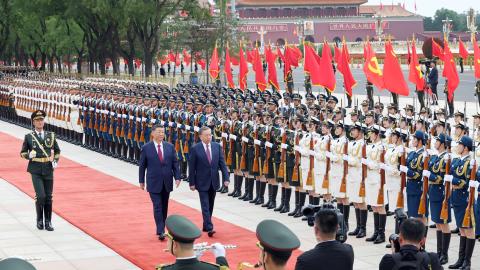The Cold War began with the end in mind. As early as 1947 George Kennan stated explicitly that U.S. policy should aim to “increase enormously the strains under which Soviet policy must operate . . . which must eventually find their outlet in either the break-up or the gradual mellowing of Soviet power.” Americans still had bitter arguments over our approach to the Soviet Union—the 1952 Republican platform, for example, rejected President Harry S. Truman’s “futile and immoral” policy of containment. The ensuing debate, however, focused on the means of containment rather than whether containment itself was the proper end for American strategy. Historian John Lewis Gaddis argues that over the decades that followed there was an “implicit agreement” among the foreign-policy establishment on containment’s purposes that never wavered.
Contrast that with the present day: The cold war with China has begun without an end in mind. American strategy lacks a guiding objective. We have an emerging bipartisan consensus on the short-term means of U.S. grand strategy. Republicans and Democrats increasingly agree on the need to arm Taiwan to deter a Chinese communist invasion and reduce U.S. economic dependency on China. But there is little discussion, let alone consensus, on the long-term ends of U.S. grand strategy.
Read the full article in the Wall Street Journal.
Enjoyed this article? Subscribe to Hudson’s newsletters to stay up to date with our latest content.



















